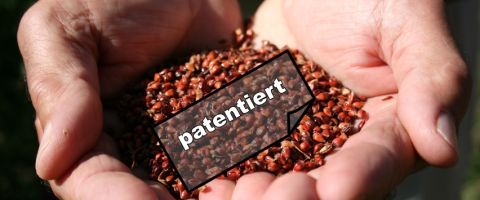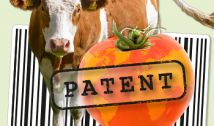In 2016, the European Commission released a statement to underline that life – specifically conventionally-bred (i.e. non-GMO) plants and animals as well as the conventional breeding techniques themselves (such as crossing) – are not patentable under EU. This statement was made to remind the European Patent Organization (EPOrg) of the current EU ban on patenting life, since the EPOrg started to violate this law and granted about 80 patents on conventional plants in recent years (e.g. three patents on barley). This became possible as the EPOrg interpreted current patent legislation in favour of corporations that used cunning formulations to exploit loopholes in the law. As part of the international alliance “No Patents on Seeds!”, ARCHE NOAH demonstrated great commitment to obtain the statement of the Commission, which we thus celebrated as a great success. The Commission’s clear position was a significant step towards the goal of banning patents on plants and animals.
Furthermore, the Commission called on the EPOrg to adapt its Implementation Regulations to prevent further violations of EU law. However, the EPOrg was not bound by this statement, as it is an independent organisation sitting outside the EU (it has 38 Contracting States).
On the 28th and 29th of June 2017, the Administrative Board of the EPOrg – consisting of representatives of its 38 Contracting States – met to decide on changes to the Implementation Regulations. At this meeting, the members agreed on a proposal put forward by the European Patent Office (EPO). This proposal inserted new text into the Implementation Regulations limiting the patentability of plants and animals obtained exclusively by essentially biological breeding processes. However, it failed to address significant loopholes in the Regulations, which means the EPO will be able to continue granting patents on life.
In the run-up to the decision of the Administrative Board, ARCHE NOAH strongly engaged in highlighting the legal loopholes and the negative consequences of patenting plants and seeds for consumers, farmers, small seed producers and, of course, diversity. The success of our work became obvious, as Austria was the only country rejecting the EPO’s inadequate proposal. Yet as one dissenting vote is not enough to change the resolution, the decision of the Administrative Board has now green light to the continued improper granting of patents on conventionally bred plants and animals.
However, Austria’s vote sent an important political signal to the EPO and the other Contracting States that further measures are necessary to put an end to patents on life and to bring the EPO’s practice in line with EU law. Austria thereby represented the interests of civil society and not the wishes of industries and the EPOrg, who are the only ones to profit from the privatisation of our nature. We feel reinforced in our work through Austria’s position and will continue to enlarge the political will to defy improper patent decisions on plants and animals.
Since 2023, there has been an additional layer in the European patent law system: The European Unitary Patent, which applies in 17 EU member states, has come into force. You can find a factsheet on this in the download section below.








